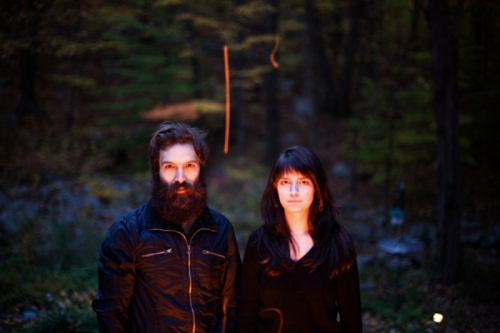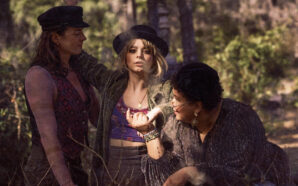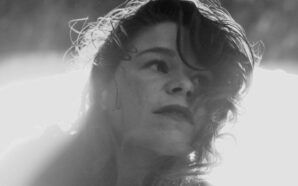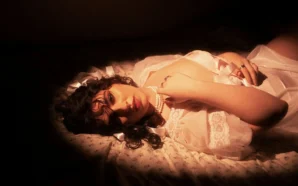The opening line of Brown Bird’s latest press release is “Brown Bird is better listened to in a room made of wood.” This is a bit of a tall order to ask of a contemporary indie band… especially one that find themselves regularly performing in both punk clubs and dinner theater settings. I sat down with the (newly) duo David Lamb and MorganEve Swain before their recent performance at World Café Live, opening for Dark Dark Dark, to discuss this, among other things. “When it’s best is when a bunch of different elements come together,” Lamb tells me, “when they’re there with you,” reflecting upon the best settings to experience Brown Bird in a practical, and not necessarily Utopic, environment. He describes their sound as “delicate music with a lot of subtleties” but that, for the live performances, “the energy is kept up.” This is a pretty awesome sentiment, yet one that is difficult to carry out in real life. After their set at WCL, Lamb relayed to me that he agreed that the setting was “a bit too polite,” despite the fact that a relatively large portion of the audience of strangers did thoroughly enjoy their set, profess their appreciation, and buy merch.
Brown Bird may be looking a little different from the last time you saw them. Although they are currently a duo, consisting exclusively of Lamb and Swain (who are a couple not only in the musical sense), many of you may remember them as a slightly larger entity. “It may be a little more gradual than it seems” Lamb tells me, going on to explain that Brown Bird actually started with just himself. At one point they were a five-piece, but “Only a five-piece briefly,” yet that, as is often the case, happens to be the most documented portion of their existence. After that, the band got comfy as a three-piece, however, Lamb and Swain got quite comfortable living together as a couple and the third member had “creative differences” that didn’t quite mesh with the couple. Upon asking if they have any favorite “partners” in music, [The following portion of this sentence was written pre-October 14th and, for the sake of the weight of the situation at hand, I feel it important to keep, if only to make people ponder one of the greatest tragedies of the century, thus far: Lamb admits that he is a fan of Sonic Youth, but that he’s “never thought of Brown Bird in those terms.”] “None of them are as cool as us,” Swain tells me, tounge-in-cheek.
Brown Bird’s sophomore effort, Salt for Salt is due this Tuesday, October 18th, on Supply & Demand Music. The album was recorded live, in hopes of capturing the spirit of the duo’s direct-to-crowd performances. David and MorganEve describe their latest as being “A little more stripped down, a little more sparse, but more upbeat” than their previous work, capturing more of what their live show is like. The pair remain very hesitant to pigeonhole their music as fitting into any one genre, although it’s hard to not attach a word like “roots” to it: “I would like people to know that we’re not a folk band.” MorganEve emphatically spouts at one point. She goes on to tell me that her biggest fear is that someone will refer to Brown Bird as “folk” and show up expecting to hear Joan Baez.
“Of course, it is easy to download the code and listen to the band on small computer speakers, but what is the point?” asks Professor Charles Booth, author of their latest press release. It’s obvious that this group has, in some sense, a “traditional” approach to music (not to mention the fact that the sounds found on Salt for Salt are courtesy of guitar, bass drum, banjo, violin, double bass, and cello), so I was curious if they had any thoughts on contemporary methods of consuming music and if they have any sort of political stance on them. Lamb tells me that he and Swain are yet to tear themselves away from the likes of vinyl and CDs: “We have a pile of CDs to listen to in the van and we listen to records when we’re at home,” implying that they are yet to succumb to the digital format, but clarifies “We’re not really anti anything.”
